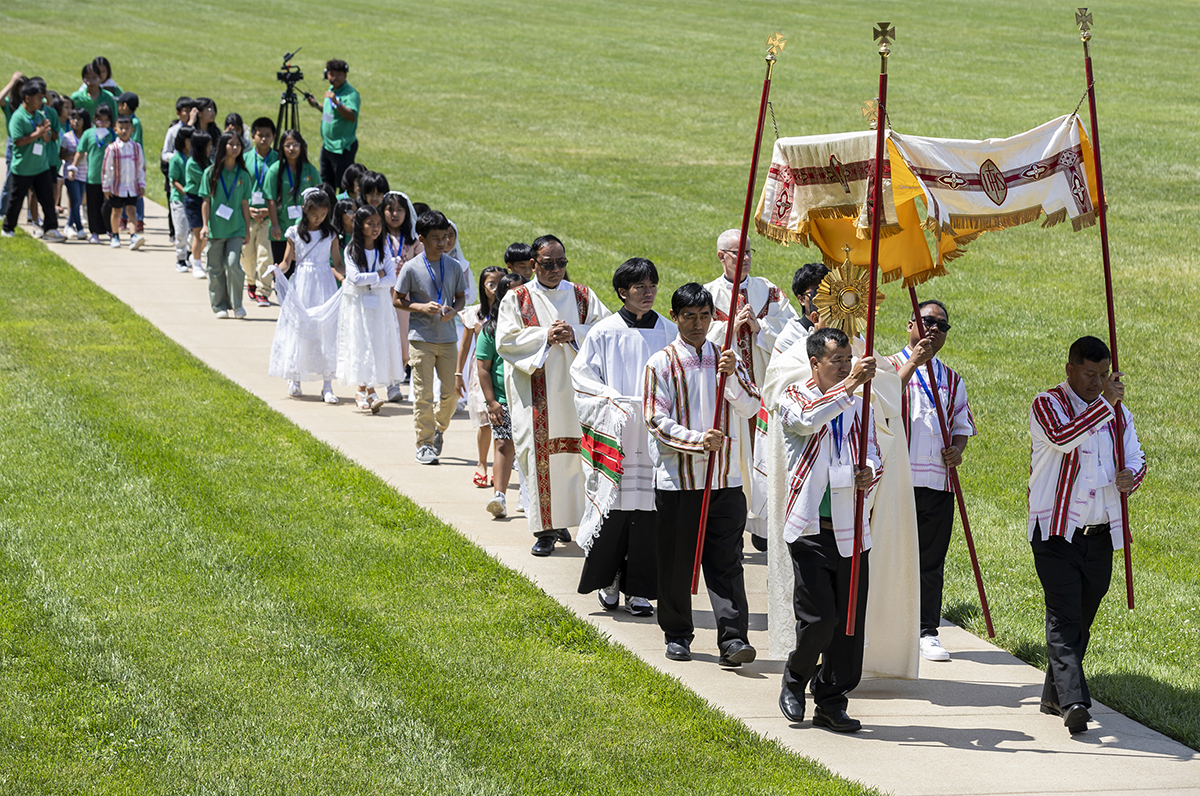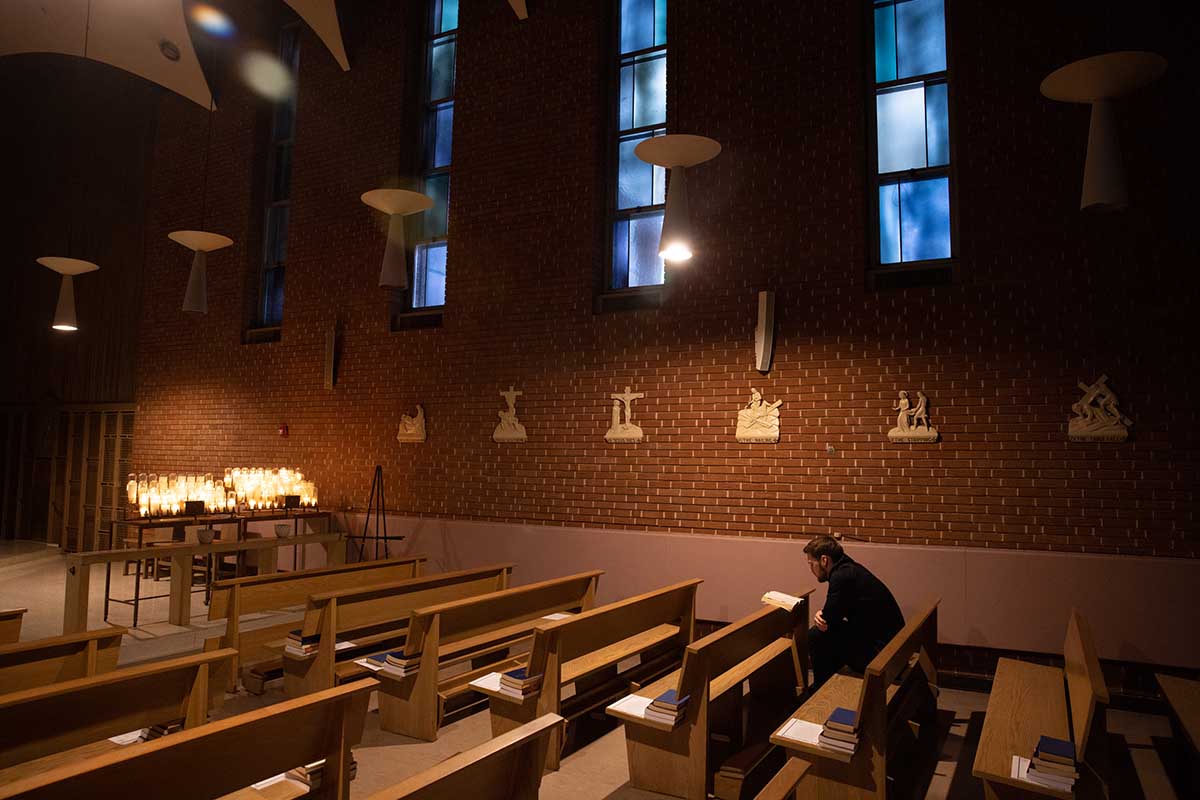History of St. Louis IX reveals love for poor, justice — and a defender of the Christian faith
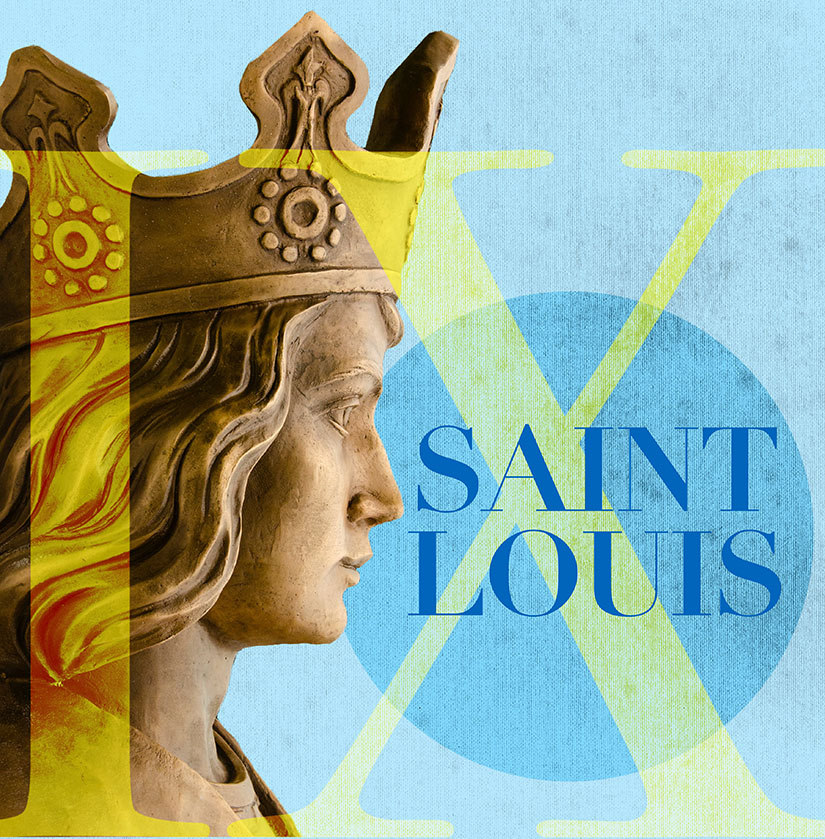
Louis IX was the only French king to be canonized a saint by the Catholic Church
At his coronation, King Louis IX made an oath to serve as God’s anointed, as the father of his people and feudal lord of the King of Peace. Louis was different from other kings — he interpreted his kingly duties in the light of faith. After the violence of two previous reigns, he sought to bring peace and justice to France.
Centuries later, when the city of St. Louis was founded in 1764, French fur traders Pierre Laclède and Auguste Chouteau chose Louis IX as the city’s namesake. It’s not certain why they chose his name for the new settlement, but with such strong French Catholic origins, it’s not surprising.
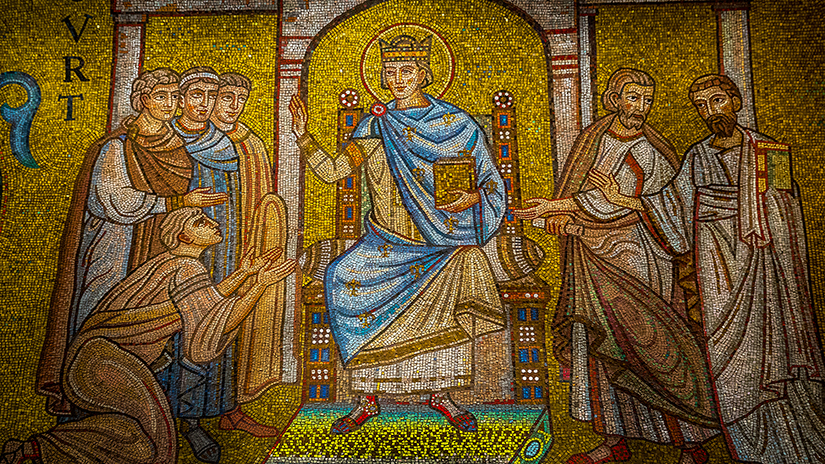
The French monarch led during a tumultuous time during the Middle Ages. Much of his history includes stories about his deep Catholic faith, and his service to the poor. But he also faced other more complicated issues of the time, including his involvement in the Crusades, and treatment of the Jewish people.
Service to the poor
Born in 1214, Louis IX ruled France in the middle of the 13th century. He was crowned at the age of 12, when his father died. His mother, Blanche, ruled the country until he was old enough to reign. At the age of 19, he married Marguerite of Provence — she was only 13. They had 10 children.
During his reign, Louis was devoted to his people, founding hospitals, visiting the sick and, like his patron St. Francis, caring for people with leprosy. He united France — lords and townspeople, peasants and priests and knights — by the force of his personality and holiness. For many years, the nation was at peace.
Every day, Louis invited special guests from among the poor to eat with him, and a large number of the poor were served meals near his palace. During Advent and Lent, all who presented themselves were given a meal, and Louis often served them in person. He kept lists of needy people, whom he regularly relieved in every province of his dominion.
Mosaics of St. Louis IX at Cathedral Basilica of Saint Louis The Cathedral Basilica of St. Louis features a series of mosaic panels that depict the principal events in the life of King Louis IX. These images show the saint helping the needy, accepting the Cross of the Crusader, administering justice at the court, meeting with his mother, founding the Sorbonne, receiving Holy Communion and returning from the Holy Land with the Crown of Thorns. For more information on the mosaics at the Cathedral Basilica of Saint Louis, visit cathedralstl.org.
He supported the founding of the Sorbonne, the theological division of the University of Paris. He also had a special place in his heart for members of religious orders and lent his support to them.
The Crusades
Louis IX “took the cross” for a Crusade when he was 30 years old. To understand why he was involved in the Crusades, it’s important to understand what the Crusades were about, said Thomas Madden, professor of Medieval history at Saint Louis University and author of “The Concise History of the Crusades.”
“The purpose of the Crusades to the East was to restore Christian lands captured by Muslims and to safeguard the Holy Land so that pilgrims could safely travel there,” Madden said. “In the Middle East, the Crusades were responses to attacks on Christians. All of them were understood as defensive wars, a just response to military aggression against Christian peoples.”
The Medieval world was very much different from what our world is like today, Madden noted. “Every society has something that binds them together and defines who they are,” he said. “In the modern world, that tends to be nationalism. We feel bound together by the idea of the United States and have an affinity for American culture.”
There was no such concept of nationalism in the Middle Ages, he said. “People were identified by their local region, rather than the kingdom in which they happened to be. The one thing that bound together European Christians was their membership in the Catholic Church, each of them part of the Body of Christ. Since the vast majority of Europeans were Christians, they viewed attacks on Christians or the Church anywhere as attacks on them — just as we today react to attacks on Americans anywhere in the world.”
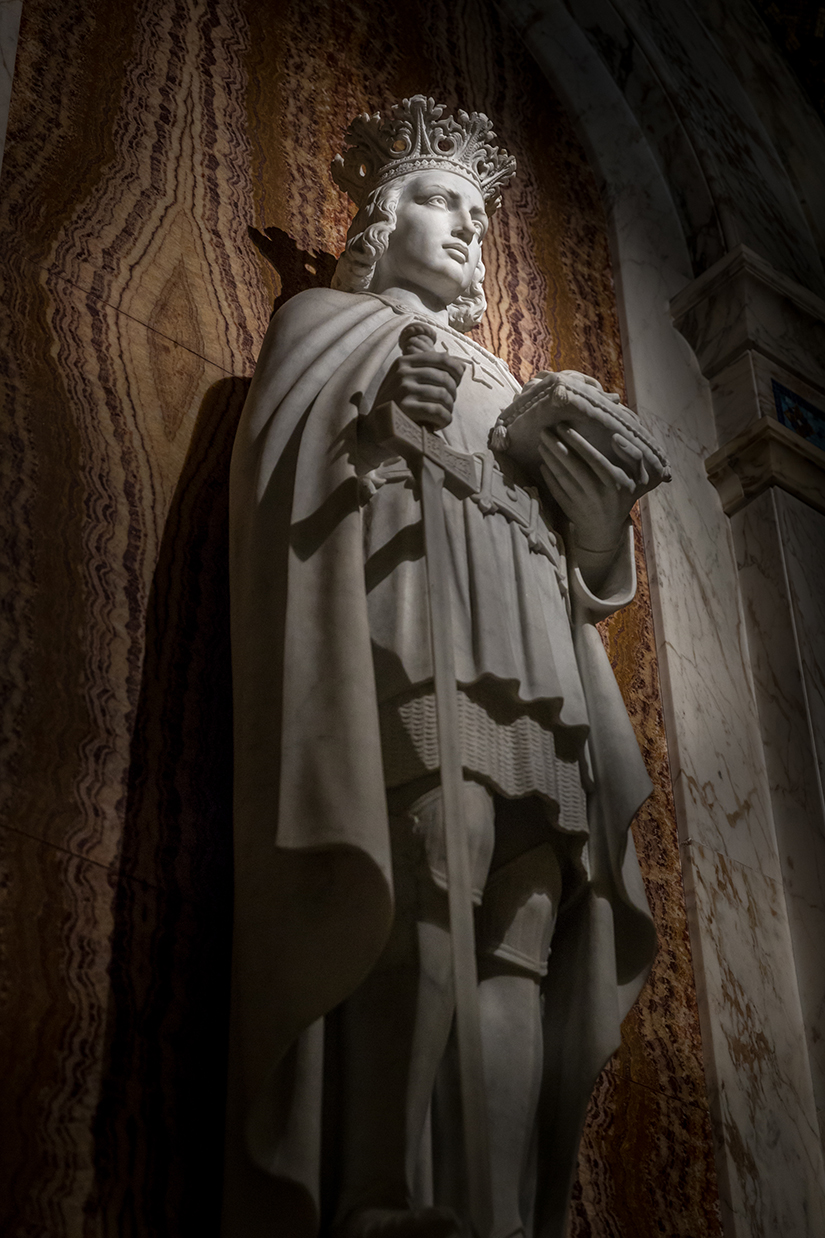
These military expeditions, which began in the late 11th century, had several objectives, including prevention of further Islamic conquests, retaking control of the Holy Land, conquering hostile pagan areas, and recapturing formerly Christian territories.
In 1071, the Turks conquered Jerusalem and they were, as Madden put it, “not very friendly to the Christians.” The First Crusade’s objective was to reverse the recent conquests and to restore Jerusalem to Christian control.
When Louis IX embarked on his first Crusade in 1244, he was on a mission to take back Christian control of Jerusalem. “A Turkish army in 1244 captured the city, massacred Christians and destroyed many churches there. He wanted to take it back.”
Louis’ army took Damietta on the Nile (Egypt) in 1249, but during an attempt to march to Cairo they were surrounded and captured. He obtained the release of the army by giving up the city of Damietta in addition to paying a ransom. He remained in Christian Syria four years, during which he negotiated agreements of peace with the Muslim powers.
Disturbed by new Muslim advances in Syria, Louis led another crusade in 1267, at the age of 41. His crusade stopped at Tunis to await the arrival of his brother, Charles of Anjou. The army was decimated by disease within a month, and Louis died on foreign soil at the age of 44.
Seeking justice, finding tolerance — and a judgment
Louis IX also has been credited with extending justice in civil administration. He drew up regulations for his officials, which became the first of a series of reform laws. He replaced trial by battle with a form of examination of witnesses and encouraged the beginning of using written records in court.
Louis was respectful of the papacy, but defended royal interests against the popes and refused to acknowledge Innocent IV’s sentence against Emperor Frederick II. He also obeyed papal commandments (dating back to Pope Gregory the Great) in not allowing persecutions of the Jewish people.
During the Middle Ages, the Jews had a rough time in general, Madden explained. There was no modern concept of religious tolerance, with many Christians believing in the idea of converting others to Christianity.
“Gregory the Great insisted that Catholics were to tolerate Jews,” Madden said. Louis was obedient to the Church in that regard. “In his kingdom, he was careful to make sure there were no direct persecutions of the Jews as had occurred in many other places, like England and Germany.”
Some have said that Louis was known for expelling the Jews from France, but those claims are unfounded, Madden said. “He imposed rules on the Jews — they could not take interest on loans, for example — but those were also laws that pertained to the Christians.”
Louis also has been criticized for burning copies of the Talmud, the book of Jewish law. Madden noted that the Talmud included extra biblical scriptures that Christians of that time didn’t know about.
“The pope ordered monarchs to investigate the Talmud, and Louis did that,” Madden said. “In the end, the theologians in Paris judged it to be heretical, and should therefore be burned. From a modern perspective this is an act of intolerance, but from a medieval perspective it was a defense of the faith.”
King Louis IX died on Aug. 25, 1270 and was canonized in 1297. He became the only French king to have been canonized a saint by the Catholic Church. This year marks the 750th anniversary of his death.
From a spiritual testament to his son by St. Louis
A just king rules the earth
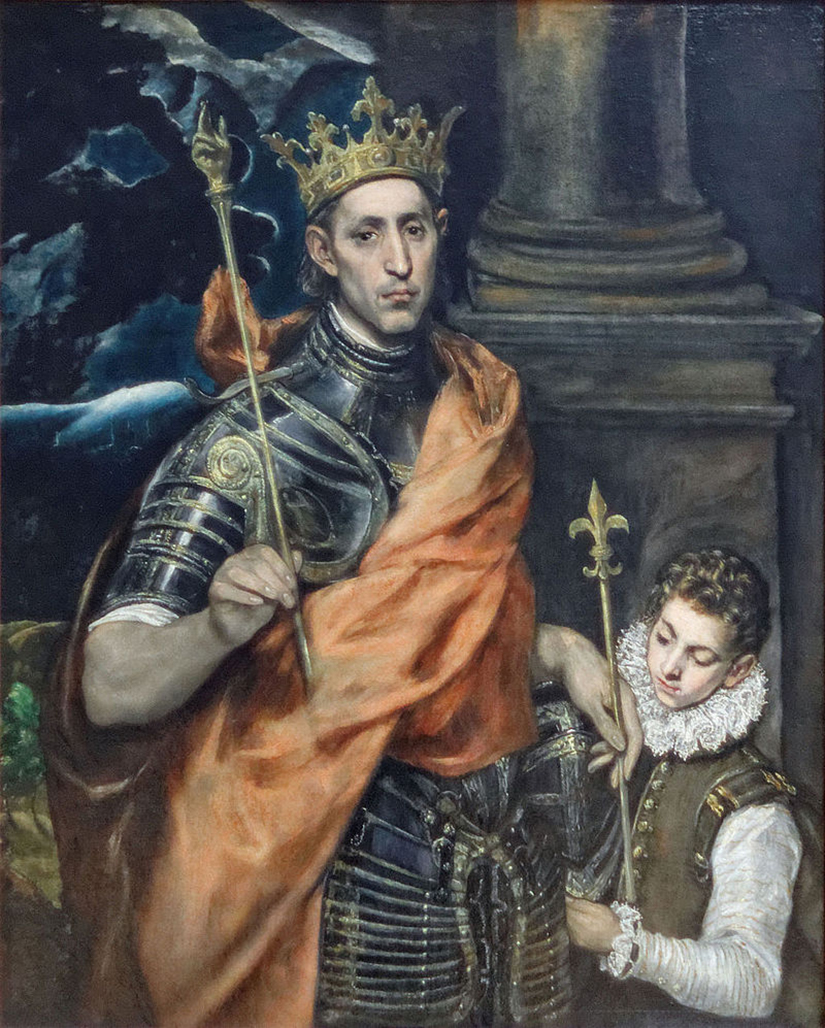
My dearest son, my first instruction is that you should love the Lord your God with all your heart and all your strength. Without this there is no salvation. Keep yourself, my son, from everything that you know displeases God, that is to say, from every mortal sin. You should permit yourself to be tormented by every kind of martyrdom before you would allow yourself to commit a mortal sin.
If the Lord has permitted you to have some trial, bear it willingly and with gratitude, considering that it has happened for your good and that perhaps you well deserved it. If the Lord bestows upon you any kind of prosperity, thank him humbly and see that you become no worse for it, either through vain pride or anything else, because you ought not to oppose God or offend him in the matter of his gifts.
Listen to the divine office with pleasure and devotion. As long as you are in church, be careful not to let your eyes wander and not to speak empty words, but pray to the Lord devoutly, either aloud or with the interior prayer of the heart.
Be kindhearted to the poor, the unfortunate and the afflicted. Give them as much help and consolation as you can. Thank God for all the benefits he has bestowed upon you, that you may be worthy to receive greater. Be just to your subjects, swaying neither to right nor left, but holding the line of justice. Always side with the poor rather than with the rich, until you are certain of the truth. See that all your subjects live in justice and peace, but especially those who have ecclesiastical rank and who belong to religious orders.
Be devout and obedient to our mother the Church of Rome and the Supreme Pontiff as your spiritual father. Work to remove all sin from your land, particularly blasphemies and heresies.
In conclusion, dearest son, I give you every blessing that a loving father can give a son. May the three Persons of the Holy Trinity and all the saints protect you from every evil. And may the Lord give you the grace to do his will so that he may be served and honored through you, that in the next life we may together come to see him, love him and praise him unceasingly. Amen.
At his coronation, King Louis IX made an oath to serve as God’s anointed, as the father of his people and feudal lord of the King of Peace. Louis was … History of St. Louis IX reveals love for poor, justice — and a defender of the Christian faith
Subscribe to Read All St. Louis Review Stories
All readers receive 5 stories to read free per month. After that, readers will need to be logged in.
If you are currently receive the St. Louis Review at your home or office, please send your name and address (and subscriber id if you know it) to subscriptions@stlouisreview.com to get your login information.
If you are not currently a subscriber to the St. Louis Review, please contact subscriptions@stlouisreview.com for information on how to subscribe.

